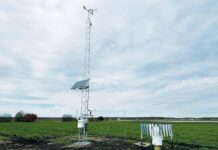COLUMBIA, Mo. – Millions of animals have been slaughtered and burned as agricultural experts in Europe and the United Kingdom struggle to bring foot-and-mouth disease under control.
Those animals aren’t the only commodities going up in smoke, said the head of a European farmer group.
“The economic impact of the disease has been enormous, but psychologically, it has been even worse,” said Noel Devisch, president of Boerenbond, the Belgian farmers union. “Consumers see pictures of these piles of burning animals, and it destroys the reputation of farmers,” Devisch said.
The agricultural economist discussed the current European livestock disease situation, and its probable long-term impact on European agriculture, at a seminar at the University of Missouri.
“The farmers are demoralized because there was nothing they could do to prevent the disease or stop it from spreading,” he said. “That is because governments previously outlawed the use of vaccinations against the disease. Farmers watch their animals slaughtered, and they get criticism from the consumers, but it was out of their control.”
Millions slaughtered.
So far, foot-and-mouth disease has caused the slaughter of some 4 million animals in the United Kingdom and Europe. Add livestock costs to losses of tourism and food export dollars, and Devisch said the current total might exceed $10 billion. While no outbreaks have occurred in Belgium, several sheep and cattle herds there have been destroyed because they included animals imported from the United Kingdom
Foot-and-mouth disease poses no significant health threat to humans. It is highly contagious to livestock, and causes a general wasting away of the animal’s health, reducing meat and milk production. It can be fatal to young animals, but most animals recover. Yet infected or possibly infected animals must be destroyed to keep the disease pathogens from spreading.
Farmer’s clout.
While the immediate public outcry may fade with the decrease in confirmed disease cases, farmers in many European countries and the United Kingdom now face a longer-term problem: Loss of political clout.
“People say, ‘you see, all this happens because we have intensive farming, because we are subsidizing our agriculture,’ ” Devisch said. “The truth is small farms, big farms, organic farms, they have all gotten contaminated. But many politicians are already calling for change in agricultural policy.”
“The scenes from Europe have had a potential negative influence on agricultural policy there,” said Pat Westhoff, program director for international affairs at the Food and Agricultural Policy Research Institute, housed on the MU campus. “It’s going to increase tensions, both within those countries and in trade negotiations between the EU and other countries like the U.S.,” he said.
Westhoff added that it’s unlikely the world will see a wholesale change in the subsidy or other policies in the EU. He predicted that farmer influence in countries such as the United Kingdom, where farmers are already hard pressed to find allies in the nonfarm sector, certainly took another downturn.
“In Germany, the mad cow crisis and other factors forced a change in agricultural ministers. The new minister is a member of the Green Party, which has been critical of current EU ag policies,” Westhoff said.
French farmers continue to have a substantial amount of political clout, even if that clout has been reduced by disease scares, he said. “It’s hard to believe that the EU would take an agricultural policy path that French farmers would strongly oppose.” All EU member states must agree to major policy actions by the EU commission.
Loss of exports.
“The bad publicity has increased the already high degree of nationalism around global trade of beef and other livestock,” Westhoff said. “No one trusts anyone else’s meat and livestock. In countries such as Germany, they don’t even trust their own supply.”
The loss of meat and livestock exports is an ironic twist, Devisch said, given that the EU ban on foot-and-mouth vaccination was enacted to increase trade. He explained that current vaccines make treated animals test positive for foot-and mouth. There also are reports of animals contracting the disease despite being vaccinated. Many Asian countries, the United States and others historically ban importation of animals testing positive.
“The vaccination ban was supposed to increase trade. For a few years, we had no outbreaks of the disease,” Devisch said. “We now know that it was only a matter of time. But even now it is difficult to get politicians and consumers to realize that foot-and-mouth is endemic. Animals will continue to carry the disease, and it will eventually show up again, unless we vaccinate against it.”
He and other farm-group leaders have called for new research to develop marker vaccines-those that allow testers to distinguish between a vaccinated animal and one carrying foot-and-mouth disease. He said concerns about free trade of animals are overshadowed by public outcry.
“The public will no longer tolerate the burning and destruction of all these animals, that much is clear,” Devisch said. “Society will decide what we do, and they have factors other than pure economics.”
Get 4 Weeks of Farm and Dairy Home Delivered









